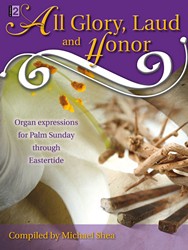- |
User Links
The Day of Wrath

That day of wrath, that dreadful day
Author: Thomas of Celano (13th cent.); Translator: Sir Walter Scott (1805)Published in 345 hymnals
Printable scores: PDF, MusicXMLAudio files: MIDI
Representative Text
1 That day of wrath, that dreadful day
When heav'n and earth shall pass away!
What pow'r shall be the sinner's stay?
How shall he meet that dreadful day?
2 When, shriveling like a parched scroll,
The flaming heav'ns together roll;
When louder yet, and yet more dread,
Swells the high trump that wakes the dead;
3 O on that day, that wrathful day
When man to judgment wakes from clay,
Be thou the trembling sinner's stay,
Though heav'n and earth shall pass away.
Amen.
Source: Trinity Hymnal #242
Author: Thomas of Celano
Thomas of Celano was born at Celano in the Abruzzi, and joined St. Francis of Assisi c. 1214. He was commissioned by Gregory IX to write the life of St. Francis: the First Legend, 1229; the Second Legend, 1247; and the Tract on the Miracle of St. Francis a few years later. His Legend of St. Clare was composed in 1255. He was probably among the first band of friars to visit Germany, 1221. --The Hymnal 1940 Companion… Go to person page >Translator: Sir Walter Scott
 Walter Scott was born in Edinburgh, August 15, 1771. In 1786, he commenced his apprenticeship as writer to the Signet. In 1796, he first appeared before the public in a translation of Burger's "William and Helen." Many poetical works followed, until in 1814, he began the series of "Waverly Novels." He died at Abbotsford, September 21, 1832. It is related that on his death-bed he distinctly repeated portions of the Latin original, upon which "That day of wrath, that dreadful day" is based.
--Annotations of the Hymnal, Charles Hutchins, M.A., 1872… Go to person page >
Walter Scott was born in Edinburgh, August 15, 1771. In 1786, he commenced his apprenticeship as writer to the Signet. In 1796, he first appeared before the public in a translation of Burger's "William and Helen." Many poetical works followed, until in 1814, he began the series of "Waverly Novels." He died at Abbotsford, September 21, 1832. It is related that on his death-bed he distinctly repeated portions of the Latin original, upon which "That day of wrath, that dreadful day" is based.
--Annotations of the Hymnal, Charles Hutchins, M.A., 1872… Go to person page >Text Information
| First Line: | That day of wrath, that dreadful day |
| Title: | The Day of Wrath |
| Original Language: | Latin |
| Author: | Thomas of Celano (13th cent.) |
| Translator: | Sir Walter Scott (1805) |
| Meter: | 8.8.8.8 |
| Language: | English |
| Copyright: | Public Domain |
That day of wrath, that dreadful day. By Sir Walter Scott. This is a condensed rendering of the Dies Irae, introduced by Scott at the close of The Lay of the Last Minstrel, 1805, in 3 stanzas of 4 lines, as having been sung in Melrose Abbey, “noble Angus " having decided
"That he a pilgrimage would take
To Melrose Abbey, for the sake
Of Michael's restless sprite."
The details of the pilgrimage are wrought out with grand effect, and conclude with this “hymn of intercession."
"That day of wrath, that dreadful day
When heaven and earth shall pass away!
What power shall be the sinner's stay?
How shall he meet that dreadful day?"
Soon after the publication of the Lay, &c, in .1805, this translation was given as a hymn for public worship in various collections. Dr. Collyer included it in his Selection, 1812; Cotterill followed in 1819, as "The day," &c, and others later on, until its use has extended to all English-speaking countries. Various attempts have been made to "improve" these noble lines; stanza iii., line 3 being specially selected with this result:—
"Be Thou, O Christ, the sinner's stay," in Elliott's Psalms & Hymns, 1835.
"Thou art, O Christ, Thy people's stay," in Drummond & Greville's Church of England Hymn Book, 1838.
"Jesus, be Thou the sinner's stay," in the Scottish United Presbyterian Hymn Book, 1852.
"Be Thou, O Christ, our steadfast stay," in Breay's Birmingham Selection, 1855.
The first of these changes is still in extensive use, but another change in the opening line, "On that dread day, that wrathful day," given in Cotterill's Selection, 1810, is now unknown.
This condensed rendering of the Dies Irae has not only taken a strong hold upon the general public, but it has also elicited the admiration of those who through their education and wide reading are best qualified to judge. One such has said:—
"I know nothing more sublime in the writings of Sir Walter Scott—certainly I know nothing so sublime in any portion of the sacred poetry of modern times, I mean of the present century—as the ‘Hymn for the Dead,' extending only to twelve lines, which he embodied in The Lay of the Last Minstrel. (Right Hon. W. E. Gladstone. Speech at Hawarden, Feb. 3, 1866.)
Sir Walter Scott's admiration of the original is well known. His biographer, J. G. Lockhart, says concerning his last illness:—
"But commonly whatever we could follow him in was a fragment of the Bible (especially the Prophecies of Isaiah, and the Book of Job) or some petition in the Litany—or a verse of some psalm (in the old Scotch metrical Version)—or of some of the magnificent hymns of the Romish ritual, in which he always delighted, but which probably hung on his memory now in connection with the church services he had attended while in Italy. We very often heard distinctly the cadence of the Dies Irae; and I think the very last stanza that we could make out was the first of a still greater favourite, ‘Stabat Mate rdolorosa,'" &c. (Memoirs, 1838, vol. vii. p. 391.)
--Excerpts from John Julian, Dictionary of Hymnology (1907)
Notes
That day of wrath, that dreadful day. By Sir Walter Scott. This is a condensed rendering of the Dies Irae, introduced by Scott at the close of The Lay of the Last Minstrel, 1805, in 3 stanzas of 4 lines, as having been sung in Melrose Abbey, “noble Angus " having decided
"That he a pilgrimage would take
To Melrose Abbey, for the sake
Of Michael's restless sprite."
The details of the pilgrimage are wrought out with grand effect, and conclude with this “hymn of intercession."
"That day of wrath, that dreadful day
When heaven and earth shall pass away!
What power shall be the sinner's stay?
How shall he meet that dreadful day?"
Soon after the publication of the Lay, &c, in .1805, this translation was given as a hymn for public worship in various collections. Dr. Collyer included it in his Selection, 1812; Cotterill followed in 1819, as "The day," &c, and others later on, until its use has extended to all English-speaking countries. Various attempts have been made to "improve" these noble lines; stanza iii., line 3 being specially selected with this result:—
"Be Thou, O Christ, the sinner's stay," in Elliott's Psalms & Hymns, 1835.
"Thou art, O Christ, Thy people's stay," in Drummond & Greville's Church of England Hymn Book, 1838.
"Jesus, be Thou the sinner's stay," in the Scottish United Presbyterian Hymn Book, 1852.
"Be Thou, O Christ, our steadfast stay," in Breay's Birmingham Selection, 1855.
The first of these changes is still in extensive use, but another change in the opening line, "On that dread day, that wrathful day," given in Cotterill's Selection, 1810, is now unknown.
This condensed rendering of the Dies Irae has not only taken a strong hold upon the general public, but it has also elicited the admiration of those who through their education and wide reading are best qualified to judge. One such has said:—
"I know nothing more sublime in the writings of Sir Walter Scott—certainly I know nothing so sublime in any portion of the sacred poetry of modern times, I mean of the present century—as the ‘Hymn for the Dead,' extending only to twelve lines, which he embodied in The Lay of the Last Minstrel. (Right Hon. W. E. Gladstone. Speech at Hawarden, Feb. 3, 1866.)
Sir Walter Scott's admiration of the original is well known. His biographer, J. G. Lockhart, says concerning his last illness:—
"But commonly whatever we could follow him in was a fragment of the Bible (especially the Prophecies of Isaiah, and the Book of Job) or some petition in the Litany—or a verse of some psalm (in the old Scotch metrical Version)—or of some of the magnificent hymns of the Romish ritual, in which he always delighted, but which probably hung on his memory now in connection with the church services he had attended while in Italy. We very often heard distinctly the cadence of the Dies Irae; and I think the very last stanza that we could make out was the first of a still greater favourite, ‘Stabat Mate rdolorosa,'" &c. (Memoirs, 1838, vol. vii. p. 391.)
--Excerpts from John Julian, Dictionary of Hymnology (1907)


 My Starred Hymns
My Starred Hymns




